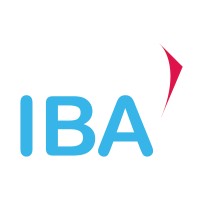
Are you ready for a post-Brexit business expansion?
The coronavirus crisis and the impact it has had on businesses and financial resources has made the prospect of growing a business seem like a distant reality for some organisations. But for British small and medium-sized B2B organisations, Brexit is an opportunity to look beyond the EU to new geographies.
With the government offering Bounce Back loans on favourable terms, marketing budgets need not be a constraint on growth, argues Simon Woolley, Account Manager at IBA International. By using a lean and targeted communications model, B2B companies can successfully market themselves to new geographies and industries post-Brexit.
Managing budgets against ambitious growth plans is a dilemma every small and medium-sized B2B organisation is familiar with. Now with the added financial pressures of the coronavirus pandemic, these organisations might be forgiven for feeling compelled to re-think their place in the post-Brexit world and resign to the possibility that limited budgets will thwart their expansion plans into new geographies.
But B2B organisations should not be so quick to abandon these plans. Having weathered the storm that is COVID-19, B2B companies have proved their resilience and can now look to the future with optimism.
As Zoom calls and remote working interactions become the norm, doing business from any location to any geography has never been simpler. Taking full control of the tools within their power and expanding their global footprint might in fact be easier to manage in a post-Brexit world than it was before.
Re-thinking international marketing from a hub
The time is ripe for small and medium-sized B2B companies to move away from traditional marketing and PR models that revolve around large marketing agency fees, and to embrace a hub strategy that can save costs and still let them scale their marketing efforts to new industries and geographies.
A marketing hub enables B2B marketers to support multiple offices across a number of regions, and ensure that consistent company messages are at the heart of their communications efforts.
The spotlight is on SMEs
Small and medium sized-enterprises, or SMEs - are often nicknamed the ‘backbone of the British economy’ because they account for 99% of all UK private sector firms. The sector continues to fuel innovation, job creation and economic growth.
In 2019 alone, 200,000 new SMEs entered the market and one only has to look at the London Stock Exchange Group’s annual ‘1,000 Companies to Inspire Britain’ list to find shining examples of world-class expertise and grit. As the potential of post-Brexit prosperity begins to take shape, SMEs have no time to waste.
The opportunities are there for the taking
These businesses are fully aware of the opportunities available to them on the wider global stage - especially across the Atlantic. A recent survey by the Federation of Small Businesses found that the US is considered as the most important individual country market for small firm exports over the next three years, with over 30,000 SMEs already involved in export activities.
In fact, SMEs that focus on exporting to markets outside the EU grow faster than those exporting to the bloc - the 2019 YouGov research found businesses that drew more than a quarter of their revenue from non-EU exports reported annual growth of 13%.
The new norm requires a new marketing outlook
Managing shifting budgets in the face of ambitious international expansion is a task many B2B marketers will be familiar with. A recent report from the British Business Bank shows a third of SMEs have the desire to grow, but feel a lack of available funding is curbing their ambitions.
The single biggest force holding these businesses back will be their expectation that in order to gain brand awareness they must employ PR agencies or have a marketing team on the ground in every new geography they want to expand to, creating an organisational nightmare.
With multiple offices working in silos, approvals processes are lengthy, messaging is diluted, and timely press opportunities are often missed. Location-based PR is big business for ‘old school’, inflexible agencies that boast smart offices in high-rise buildings and equally sky-high fees - with a three-month launch campaign costing anywhere between €6,000 and €11,000 per month.
But if the coronavirus crisis has taught us anything, it’s that we are in a new norm - that those who are quick to adapt and move away from traditional methods can survive adverse market environments - and that almost everything can be achieved remotely. So, instead of employing high cost agencies in every new industry or geography, B2B organisations can now choose to be savvy with their marketing resources by using a marketing hub.
The Hub at work - low cost, consistent, powerful
1. A single team means accountability
A hub delivers compelling thought leadership, social media and influencer programmes to put your brand front and centre in new industries and geographies - and win new business. Geography-specific content should be localised centrally, translations managed through an agency or designated in-house staff member and all communication should be routed via a single point of contact, providing accountability and streamlined, frequent, metrics-based reporting.
2. Global outreach from a single hub
An asset library will offer boundless possibilities to create media touchpoints. With a content hub, created internally or by an agency partner, one team can create, store content and re-purpose it from existing assets - localising with specific insights depending on the geography it is intended for. This should then be pitched and placed in media targets in specified geographies - with further reworking where required to guarantee multiple placements for each piece of content. Prospects will find their way to your subject matter experts and website, no matter where they are in the world.
3. Ditch the wire - press releases direct to the inbox of journalists
The press release is a hugely powerful tool for establishing presence and building credibility in a new market or geography. Many organisations will spend endless cycles on getting it right, only to pass the release on to newswire services that plaster it on websites that prospects may have not even heard of - let alone read!
This ‘spray and pray’ approach is not only ineffective but also unnecessarily expensive. Press releases should go straight into the inboxes of the most influential target journalists in a certain industry or geography to ensure it is read by the right people at the right time - and for a fair price.
Those who dare win!
Small and medium-sized businesses have had to face the ultimate stress-test in the last few months. To survive these external forces SMEs have shown resilience - and it is this resilience that will give these companies an advantage when navigating a post-Brexit market climate.
But SMEs should not let traditional marketing methods - and the large retainer fees that come with it - restrict them from expanding into new geographies and seizing the opportunities that this new market environment could offer. Whether an organisation decides to take their PR support in-house or continue to outsource their PR, with a deliverables-based, results-driven PR model - instead of paying for services by the hour - companies will be able to grow into new geographies without financial resources hindering expansion.


